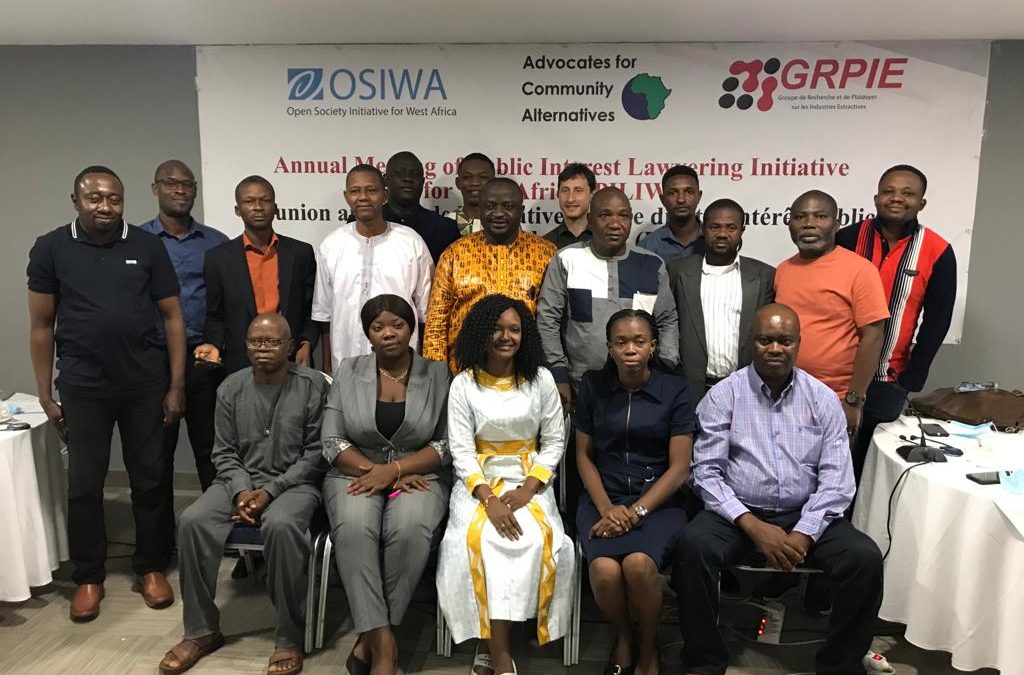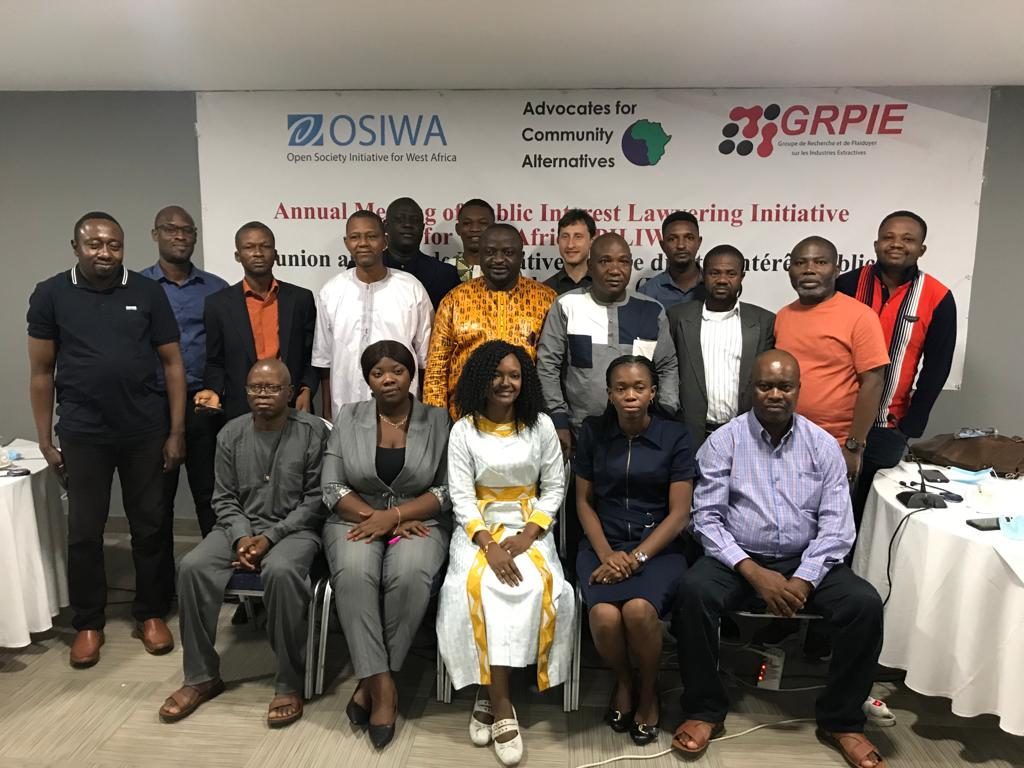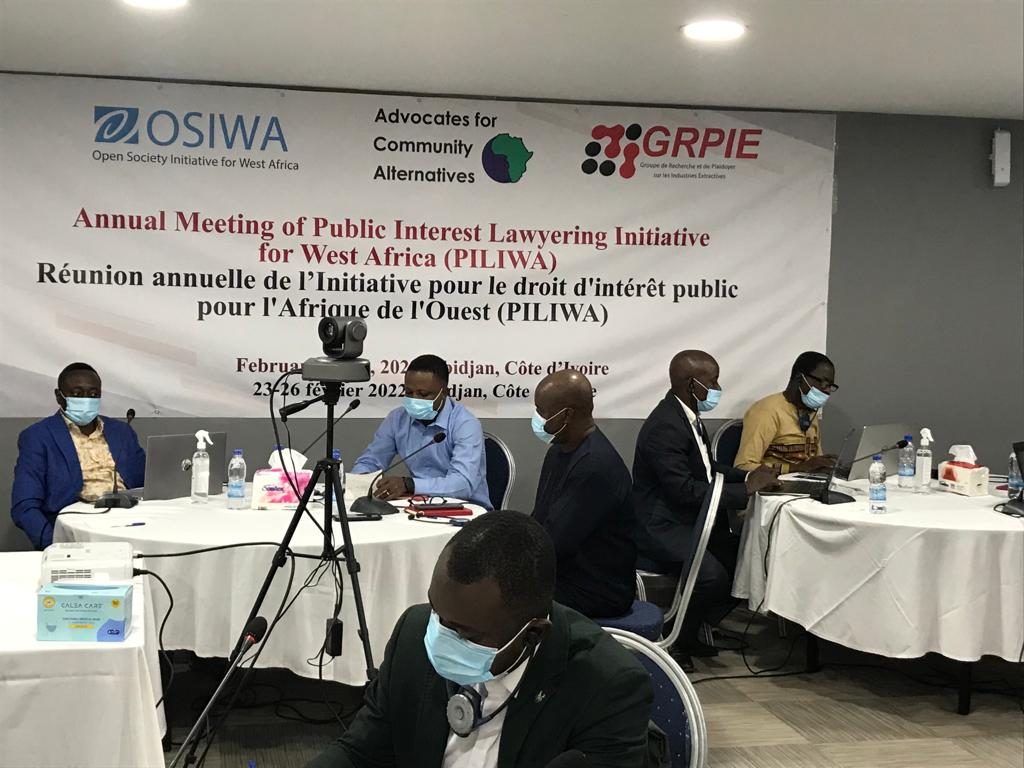The Public Interest Lawyering Initiative for West Africa (PILIWA) is a professional network of West African lawyers, legal practitioners, and other advocates who use law to promote social justice. We share a commitment to using the law to protect the rights of vulnerable individuals and communities and enhancing their ability to shape their own economic future. We are spearheading the transformation of the legal profession in West Africa to ensure that lawyers work in the public interest rather than just in the interest of the powerful few.
To achieve its mission, PILIWA has among other things established an annual conference to allow the members of the network to meet, share experiences and develop new legal and socio-political strategies to better promote and defend the rights of communities and ensure social justice in West Africa.
The annual conference is a space for communication and development of strategies to strengthen the network. PILIWA members meet once a year in one of PILIWA’s member countries. It allows members of the network to discuss the cases they are working on, the progress made and the challenges encountered. This allows members to share their knowledge and experiences, reflect together on how to address challenges and more clearly identify opportunities for collaboration.
The conference offers members of the network trainings on various human rights themes which allow them to learn different theories of change and different approaches to advocacy and strategic litigation. These trainings not only reinforce their passion for social justice but also sharpen their expertise on issues of environmental rights, land grabbing and all related rights, corporate due diligence standards, resettlement standards, mining standards, strategic litigation etc.
Network members use the conference to also propose appropriate strategies for the future of the network. To this end, one of the successes that has emerged from the conferences is the collaboration around a legal strategy to create systemic change in West African human rights jurisprudence. This nine-country strategy consists of filing cases both internationally at the ECOWAS Community Court of Justice and also domestically before national courts to highlight the mismanagement and responsibility of States in relation to mining operations. The aim is not only to seek justice and compensation for communities affected by human rights violations caused by the extractive industries, but also to encourage ECOWAS to examine closely the degree of compliance of its countries members in respect of their obligations under international law.
Additionally, it is hoped that these efforts will help to change national and regional policies to prioritize the interests of West African communities that suffer violations and abuses committed by multinationals. The lawyers of the network, French and English speakers, collaborate together on their respective cases and complaints filed at the level of the ECOWAS Court of Justice.
From these annual meetings, the idea of making PILIWA an institutional and independent entity was also born, with its own constitution and operating structures with a view to ensuring effective participation and collective ownership by the members. From this institutionalization of PILIWA, was also born the idea of creating a national PILIWA chapter in each country in order to increase its actions and impact.
In conclusion, the annual PILIWA conference allowed the network to grow in terms of membership, expertise, strategy etc.



Recent Comments